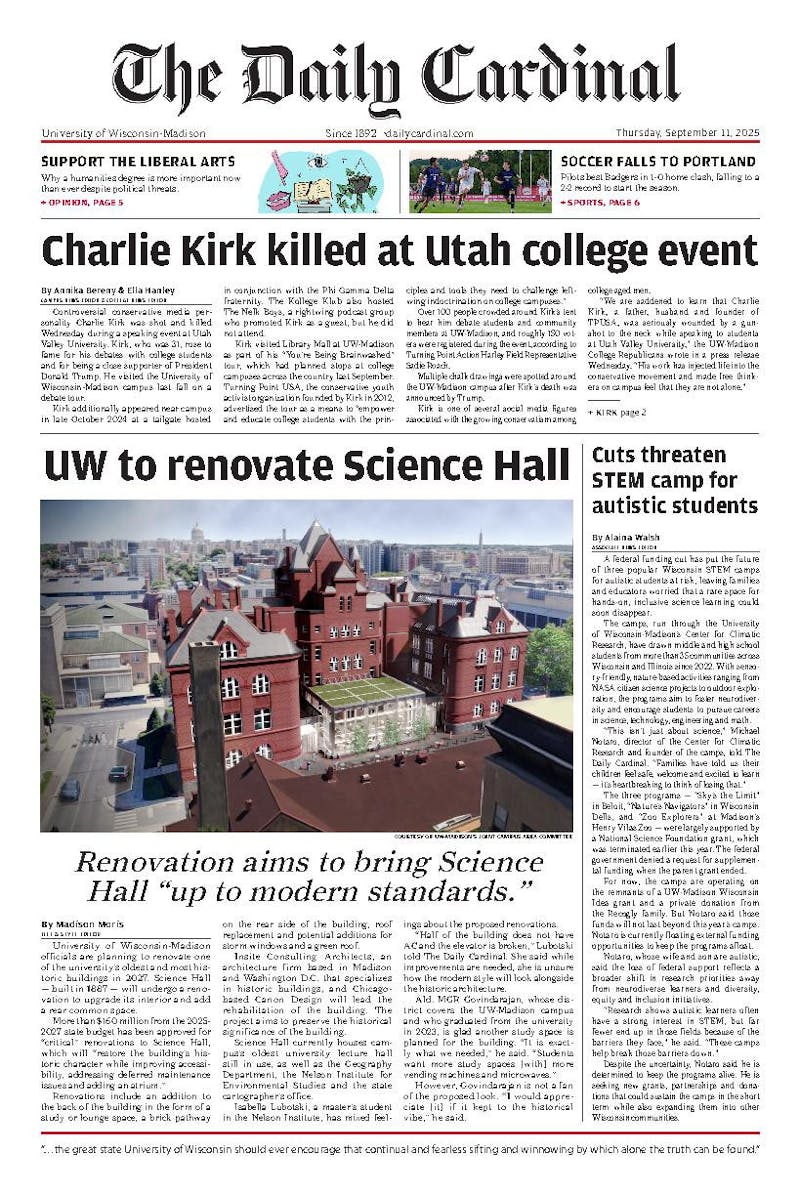Three of the four candidates running for positions on the Associated Students of Madison's Student Services Finance Committee answered questions about student finance issues Sunday in the first annual SSFC debate.
Current SSFC representatives and candidates Kurt Gosselin and Adam Porton joined first-time candidate Joey French in the debate, which detailed the candidates' views on how segregated fees should be used to provide funding for student services.
The candidates agreed with each other on the majority of the questions.
SSFC Vice Chair Katrina Flores, who moderated the debate, said SSFC makes recommendations to ASM Student Council on the allocation of more than $19 million in segregated fees - money paid by all UW-Madison students in addition to tuition.
I think we're really blessed at Wisconsin to have so much authority as students over our activity fees,"" Porton, a UW-Madison junior, said. ""Most schools, even around the [UW] System, but also in other states, really have very limited say over where money can go and how much money they can allocate.""
French, a UW-Madison freshman, said he thinks there are some things about the current system that can be changed.
""I think I have a chance to control the non-allocables to in turn relieve the students of such a high segregated fee that definitely has the potential to be a lot lower,"" French said.
Non-allocable fees are those for the Wisconsin Unions, Recreational Sports and University Health Services, over which SSFC has limited funding oversight. Non-allocable fees make up nearly 80 percent of total segregated fee revenue.
""What's really difficult is balancing providing services that meet students' needs - in fact, all students' needs - with the financial responsibility, because we are asking students to pitch in a significant amount of money,"" said Gosselin, a UW-Madison sophomore.
""This year was over $800 in segregated fees '¦ and with rising tuition costs, textbook costs and all the other costs associated with living in a campus setting, maintaining fiscal responsibility is really one of the important facets that we have to consider while serving on the committee.""
All candidates said the issue of ""viewpoint neutrality"" when distributing segregated fees continually comes up when student groups are denied funding.
""Viewpoint neutrality is one of the biggest problems, not only problems, but issues that arise from almost any decision that SSFC comes across,"" French said. ""One of the main goals to keep viewpoint neutrality is consistency. Consistency is definitely going to be my goal if elected for every single group over and over.""
Porton said viewpoint neutrality is ""something that is very hard to do.""
""The problem is making decisions that are consistent, and it's a long year,"" Porton said.
Porton suggested archiving SSFC members' reasons on voting for or against groups' funding eligibility to help keep these decisions consistent.
Gosselin said he sees viewpoint neutrality as a legal principle critical to SSFC so members do not make preconceived decisions about groups before they present reasons they seek funding.
French disagreed with Porton and Gosselin on his view of segregated fees funding capital building projects like the renovation of Memorial Union and the reconstruction of Union South.
Porton said he does not think SSFC has much control in the issue, but given turnout in ASM elections, there need to be checks in place to seek additional funds from ""tax dollars, tuition and donations.""
Gosselin said he thinks segregated fees are an important source for these projects, but not the only source.
""Election turnout in ASM elections is between 6 and 8 percent the past couple of election cycles,"" he said. ""I don't even know if that's a sizeable portion of the student body that these decisions should be based off of.""
The fourth candidate, UW-Madison sophomore Tony Nguyen, was not at the debate.
SSFC has three voting positions open, and elections will begin April 1 and end April 3.





